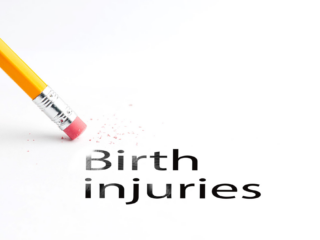
Getting your eyes checked is important for maintaining good vision and optimal eye health. If you’ve never had an eye exam before, you might feel a bit nervous or unsure about what to expect. Don’t worry – this guide will walk you through how to prepare for your first eye checkup in Toronto.
Why Are Eye Checkups Important?
Regular eye check up Toronto helps detect vision problems early on. They can also uncover other health issues that might show up in your eyes first. Even if you think your vision is fine, it’s smart to get your eyes checked every year or two.
Booking Your Appointment
Start by finding an eye doctor (optometrist) in Toronto. You can ask friends for recommendations or search online for highly-rated clinics. Once you’ve chosen a clinic, call to schedule your eye exam appointment. Try to book a time when you won’t feel rushed.
What to Bring to Your Eye Exam
Preparing for your eye checkup is simple. Here’s what you should bring:
- Health Card: Most eye exams in Toronto are covered by OHIP, so remember to bring your health card.
- Current Glasses or Contacts: If you wear glasses or contact lenses, bring them along. Your eye doctor will want to check how well they’re working for you.
- List of Medications: Write down any medications you’re taking, including over-the-counter drugs and supplements.
- Medical History: Be ready to share your medical history, especially any eye problems that run in your family.
- Insurance Information: If you have vision insurance, bring your card or policy details.
- List of Questions: Jot down any concerns or questions you have about your eyes or vision.
Being prepared with these items will help make your complete eye exam more efficient and ensure you get the most out of your appointment.
Before Your Appointment
To make your eye exam go smoothly, follow these tips:
- Get Enough Sleep: Try to get a good night’s rest before your appointment. Tired eyes can affect some test results.
- Avoid Eye Strain: On the day of your exam, try not to spend too much time looking at screens or doing close-up work.
- Skip the Contacts: If you wear contact lenses, switch to glasses for the day of your exam. This gives your eyes a break and makes some tests easier.
These simple preparations can help ensure more accurate test results and a more comfortable experience during your eye check up.
What to Expect During Your Complete Eye Exam
Knowing what happens during an eye check-up can help calm your nerves. Here’s a general outline of what you might experience:
Vision Tests
Your eye doctor will check how well you can see at different distances. You’ll likely read letters from an eye chart and look through various lenses to find the best prescription for you.
Eye Health Check
The optometrist will examine the health of your eyes using special tools. They’ll look at your eye structure, check for signs of eye disease, and measure your eye pressure.
Dilation
Your doctor might put drops in your eyes to dilate (widen) your pupils. This lets them see the back of your eye more clearly. If your eyes are dilated, they’ll be sensitive to light for a few hours afterward, so you might want to bring sunglasses.
Discussion and Questions
At the end of your exam, your eye doctor will discuss their findings with you. This is a great time to ask any questions you have about your eye health or vision.
After Your Complete Eye Exam
If your eyes were dilated, you might find it hard to focus on close-up tasks for a few hours. It’s a good idea to have someone drive you home or take public transit instead of driving yourself.
If you need new glasses or contacts, your eye doctor will give you a prescription. You can then choose frames at the clinic or take your prescription to an eyewear store of your choice.
Remember to schedule your next eye check-up before leaving the clinic. Most people should have their eyes examined every one to two years.
Common Eye Problems to Watch For
Between regular eye exams, it’s good to keep an eye out (pun intended!) for any vision changes. Some common issues include:
- Blurry vision
- Difficulty seeing at night
- Frequent headaches
- Eye strain or fatigue
- Seeing floaters or flashes of light
If you notice any of these problems, don’t wait for your next scheduled exam. Contact your eye doctor right away.
Taking Care of Your Eyes Every Day
Good eye health isn’t just about regular checkups. Here are some tips for keeping your eyes healthy:
- Eat a Balanced Diet: Foods rich in vitamins A, C, and E, as well as omega-3 fatty acids, can support eye health.
- Wear Sunglasses: Protect your eyes from harmful UV rays by wearing sunglasses when you’re outside.
- Take Screen Breaks: If you spend a lot of time looking at screens, follow the 20-20-20 rule. Every 20 minutes, look at something 20 feet away for 20 seconds.
- Don’t Smoke: Smoking increases your risk of several eye diseases. If you smoke, consider quitting.
- Stay Active: Regular exercise is good for your overall health, including your eyes.
By making these habits part of your daily routine, you can help maintain good eye health between your regular checkups in Toronto.
Your First Eye Check-Up: Nothing to Fear
Remember, an eye exam is a simple, painless process that helps keep your eyes healthy. By following these preparation tips, you’ll be ready for a smooth and informative first eye checkup in Toronto. Your eyes do so much for you every day – an annual exam is a small investment in keeping them working well for years to come.
















